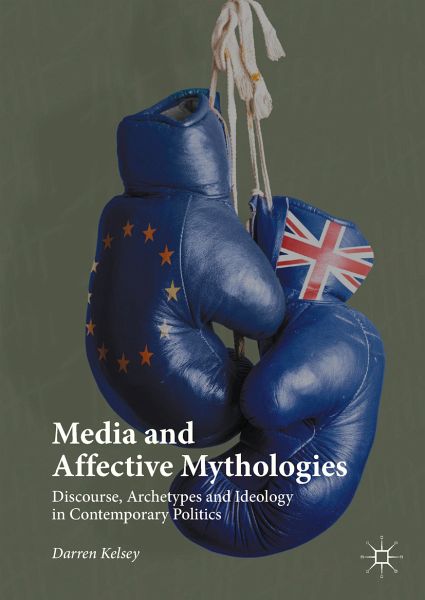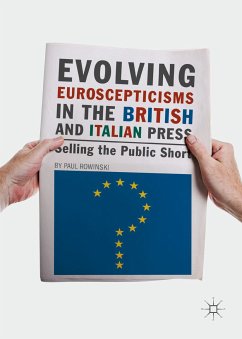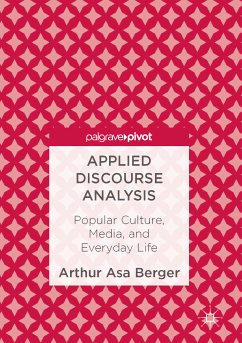
Media and Affective Mythologies (eBook, PDF)
Discourse, Archetypes and Ideology in Contemporary Politics
Versandkostenfrei!
Sofort per Download lieferbar
52,95 €
inkl. MwSt.
Weitere Ausgaben:

PAYBACK Punkte
26 °P sammeln!
This book provides a timely political insight to show how mythology plays an affective role in our lives. Brexit, bankers, institutional scandals, the far right, and Russell Brand's "revolution" are just some of the issues tackled through this innovative and interdisciplinary discourse analysis. Through multimedia case studies, Kelsey explores the psychological dimensions of archetypes and mythologies and how they function ideologically in contemporary politics. By synergising approaches to critical discourse studies with the work of Carl Jung, Joseph Campbell and other mythologists, Kelsey's ...
This book provides a timely political insight to show how mythology plays an affective role in our lives. Brexit, bankers, institutional scandals, the far right, and Russell Brand's "revolution" are just some of the issues tackled through this innovative and interdisciplinary discourse analysis. Through multimedia case studies, Kelsey explores the psychological dimensions of archetypes and mythologies and how they function ideologically in contemporary politics. By synergising approaches to critical discourse studies with the work of Carl Jung, Joseph Campbell and other mythologists, Kelsey's psychodiscursive approach explores the depths of the human psyche to analyse the affective qualities of storytelling. Kelsey makes a compelling case for our need to understand more about the power of mythology in modern society. Whilst mythology might be part of who we are, societies are responsible for its ideological substance and implications. Media and Affective Mythologies shows howwe can begin to engage with this principle.
Dieser Download kann aus rechtlichen Gründen nur mit Rechnungsadresse in A, B, BG, CY, CZ, D, DK, EW, E, FIN, F, GR, HR, H, IRL, I, LT, L, LR, M, NL, PL, P, R, S, SLO, SK ausgeliefert werden.












